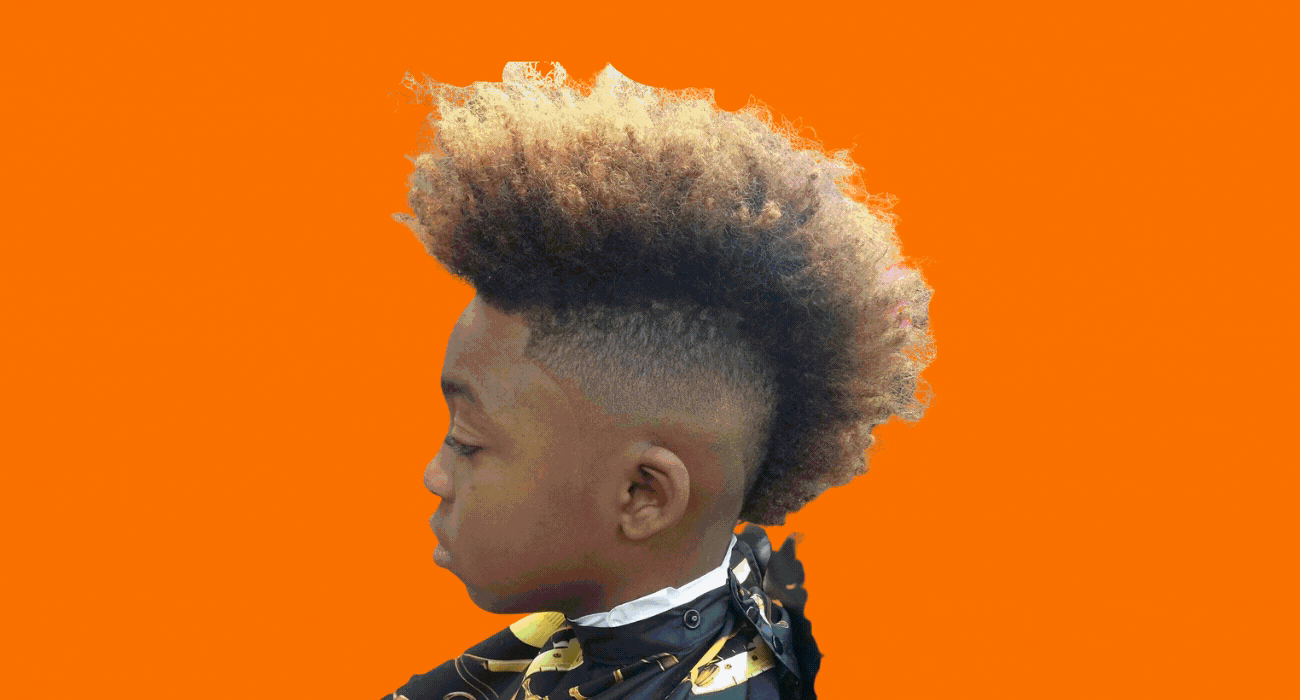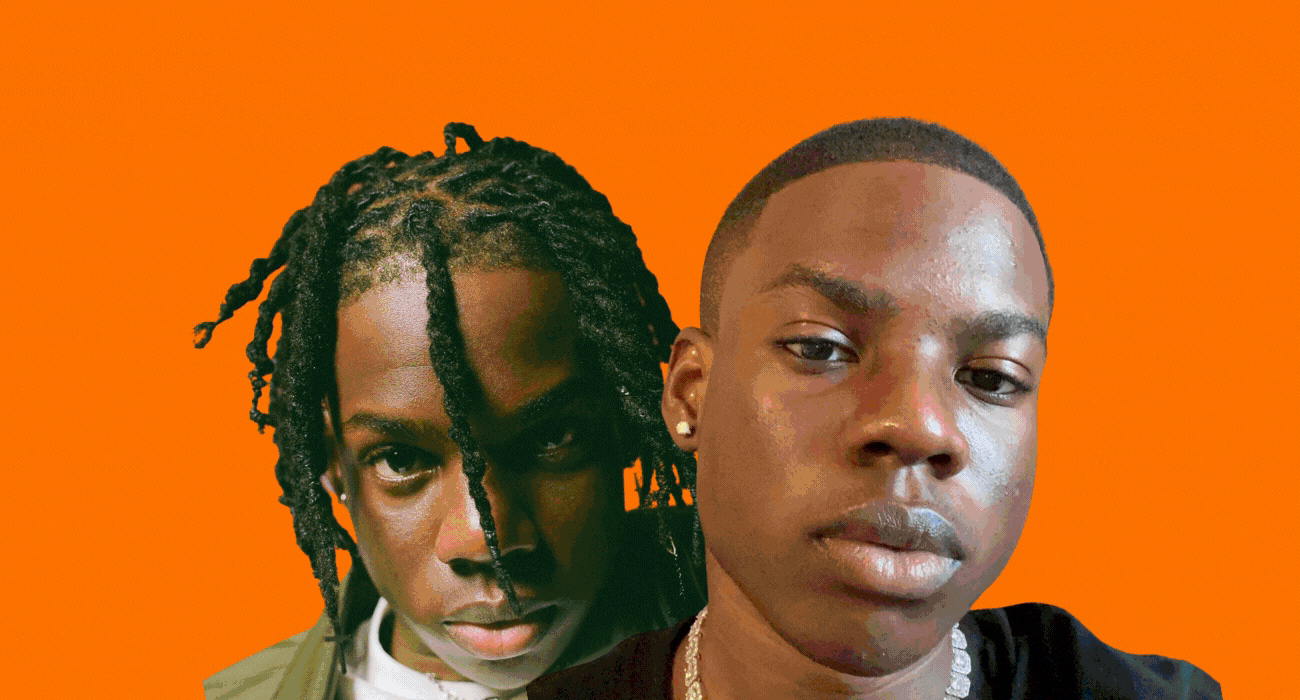Between respectability, black hair and police brutality
The Great Hair War of 2010 started because my immediate older brother had refused to cut his hair. He’d just finished secondary school and was standing on the precarious point between adulthood and childhood. He wanted to learn the secret of his hair as a way of self-discovery. However, our mother wanted him to cut his afro hair short. Very short. Our hair has always been her priority. When the scourge of HIV/AIDS ruled the airwaves, with awareness campaigns mounted across the country, our mother decided that she would cut our hair at home. One of our uncles bought her an electric clipper from Europe. And every few weeks, we’d sit in front of the TV as she cut our hair in a style we nicknamed ‘punk’.
Punk was a type of fade: the hair is cleanly shaven with only a small patch of very low-cut hair left at the front. Perhaps my brother protested or maybe she grew tired of this fortnightly ritual, but she soon began to send us to the barbing salon with the electric clipper. One day, my brother asked the barber to cut his hair in a new style. The unfortunate barber did. Minutes later, our mother marched into the salon, with my brother and I in tow. She stood watch while the barber recut his hair in a respectable style for free. Then she left specific instructions that our hair must never be cut in any other style.
Children can be casually mean. They call you exactly what you look like. In secondary school, my brother acquired the nickname ‘Bina’ - the eponymous character from an illustrated children book series who had the same punk hairstyle and, surprisingly, head shape as my brother. The name stuck - but it lost its sting perhaps because my brother did not fight it. I was never sure if he was offended by it or if he just accepted it to deflect the hurt. But I imagine that years of being called the nickname and his many mini rebellions against haircuts culminated in the Hair War of 2010.
Years of raising sons had clearly equipped our mother with the tools for this fight. She carefully approached the manner, with the clear intention of winning. First, she instructed him to cut the hair. Then, she pleaded with him. And when he refused, she mobilised an army consisting of her brothers, her older sons, and my father’s brother. Each called my brother, asking him to listen to her and cut his hair, pointing out the merits of a low cut on a young man. My brother, in his usual fashion, listened to them politely. He still refused to cut his hair.
When her army failed to deliver victory, our mother turned to God. She booked novena masses at one of our local churches. Each afternoon, she would make her way to church to pray for my brother’s hair. And in the evening, she would count her rosary beads silently. I am unsure what she expected God to do: mow his hair down while he slept? Bring down the stubborn walls of his heart like the walls of Jericho? Either way, God, despite our mother’s best effort, stayed out of the matter.
I am not sure how the war ended. I went back to boarding school to finish my last year there. When I look back at it now, I realize that the war really wasn’t about hair only. It was about something else; hair was just a metaphor for them. For our mother, it was about struggle, presentation and, more ominously, staying alive.
Back in 2005, India Arie's "I Am Not My Hair", a song about breaking toxic stereotypes that label black people by their hairstyles became a global hit, peaking at #10 on the Billboard charts. Fifteen years later, it still appears like that message continues to sail over the heads of Nigeria's Special Anti-Robbery Squad (SARS). This notorious police unit, will harass and, possibly, kill you for any reason. They will stop you because you are a young person driving a car; because you are holding an iPhone or carrying a laptop; because you have tattoos; or because of your hairstyle. They will arrest you, assault you, pin a false allegation on you, and deny you legal representation. People will believe them because you are a young Black man. And if you have an Afrocentric hairstyle or tattoos, your indignities will be justified because responsible young men do not wear long hairstyles. No, they cut their hair low till it is barely visible.
SARS will kill you; SARS will brutalise you; and the darker your skin the more excusable this inhumanity is. And if you happen to sit at the intersection of dark skin and poverty, then no one remembers you or considers your humanity - except, perhaps, your family, everyone else tags you a hoodlum or thug because only poor people can be that. You become a person who once lived, a fading memory with an eternal question mark because no one can coherently explain why you were murdered in cold blood or, worse, if you are still alive. And if you somehow escape death, your physical form might vanish as your family searches for you fruitlessly. Eventually, they will give up. They might hold a memorial; perhaps a quick funeral with an empty casket, just so they can feel some closure. Right now, you are probably with millions of other young Black men in Nigerian prisons and jails, many denied justice, awaiting justice, fighting false accusations, or locked up for a civil matter with a wealthy person.
If you somehow escape SARS, society will judge you based on outdated - and inaccurate - Lombrosian and anti-Black logic. You become unemployable despite your education - unless, of course, you cut your hair and minimise your Blackness and your heritage because proclaiming your identity through hair is considered offensive to civilised society and the corporate world.
This, I realise now, was what our mother knew and feared. And it was why she keenly waged the Hair War with my brother knowing that if she lost sight of him or if a strand grew an inch taller, she might lose him to a cruel world. Never mind that he was, at the time, still a child. His life could still be derailed or taken from him on account of his hair and fitting the type. She knew that a grown afro-hair marks you out, creates an image of you that might be false, and stands in the way of success. For her (and many others), Black hair must be strengthened and hidden away under wigs or weaves. Boys must cut their hair and leave little visible. Your hair - and, God forbid, if you have a visible tattoo - will speak to your inherent criminality and your untrustworthiness.
This minimisation of one’s Blackness is in pursuit of respectability and safety. But respectability politics is also fundamentally anti-Black because one must shade their identity as a means of social, economic and, even, biological survival. One learns with age that Black hair is criminalised and viewed as unnatural - even in West Africa composed, almost exclusively, by Black people. I am currently wearing my hair in a short dreadlock. The roots are loosening, and patches of it have come undone as is common with starter locs. I am experimenting with my hair, uncertain what exactly I want but am curious to see what I become with each new style. I have never really loved my hair, nor have I cared much for it before now. I do not understand the mysteries of its kinks and curls. Having grown up in a society that strictly regulates Black hair based on respectability and conformity, I’ve never really had the opportunity to experiment or the inspiration to try. And while I may have grown rebellious with adulthood, I lacked the wrecking ball spirit of my brother who, through the Hair War, paved a way for me. But I am also keenly aware that as a person inclined to safety and conformity, this freedom to experiment comes from the realisation that I am currently far from the active violence of Nigerian society towards Black men’s hair.
In 2018, I found a tweet from Ukpuru, a platform that curates rare images and archives of pre-colonial and colonial Igbo land. The tweet quoted a picture of 19th and early 20th century Igbo men with long hair, tattoos, and facial scarifications. More pictures on Ukpuru’s website showed Igbo men with diverse haircuts - some might even be considered feminine by today’s society. The photographs were taken by colonial anthropologists - particularly Thomas Northcote, a British anthropologist sent to eastern Nigerian by his government. They showed a people at the cusp of change, whose ways would be completely redefined and, in many cases, purged by an imperialist so that their progeny born decades later would find their pictures strange, unidentifiable, and questionable. There is a feeling of affirmation in finding these pictures; in having evidence to challenge notions that connects Black people’s expression to criminality and debunking ideas that afro hairstyles are unAfrican.
Long Black hair, as the South African scholar, Hlonipha Mokoena, notes, is about personal expression and resisting conformity. However, nonconformity is radical as it flaunts the unspoken laws bidding a society, like Nigeria’s, that upholds white supremacy and elitism as a means of social control. It is, therefore, necessary to examine police brutality, respectability politics and hair culture in Nigeria through the prism of race and racism as aftereffects of colonialism and imperialism – structures that are maintained till date because they protect the powerful, those who inherited the seat the British left in 1960. The Nigerian police is a colonial legacy, inherited and commanded by an elite class keen on maintaining a colonial social order that favours the rich and powerful at the expense of the majority.
Last month, fast-rising Nigerian popstar, Rema, posted a picture of his clean-cut head with the caption: "Dreads don't mean I'm a criminal". Until now, the 20-year old had sported a signature dreadlock, but his political statement mirrors the same motivation for why millions of young Nigerians, are screaming #EndSARS. Because, it is not just about ending police brutality, but also dismantling colonial systems and thinking that excuse and inform assault on innocent citizens. #EndSARS is also a movement against respectability politics; against a nation that conditions its young to keep quiet even as elders - and their representative force - plunder and maim them. We want our voices heard. We want to live without being profiled on account of our Blackness, our bodies, and our hair. We want the feet and guns of our oppressors - literally and metaphorically - lifted from our neck. And we want to wake every day in our country with the certainty that a policeman will not kill us just because they can. We are alive on a mere stroke of luck, but each breath brings us closer to a fatal encounter with a belligerent police officer carrying an assault rifle.
Emeka Joseph Nwankwo is a writer and digital media professional from Nigeria. He served as the communications manager (Africa) for Cassava Republic Press and is currently working on his PhD research at Manchester Metropolitan University, U.K. His writing has appeared on platforms like Popula, adda, NPR, The Republic Journal, This is Africa, and The African Report.


